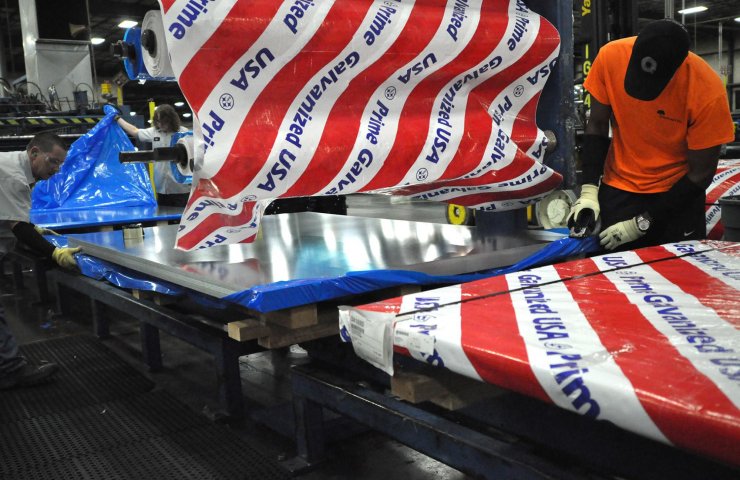The largest US metallurgical company Nucor announced a price increase of $ 40 per ton. Price increases will be applied immediately. Price increases will be made for all flat steel products, namely cold rolled, hot rolled and galvanized steel products. US Steel made a similar report.
American steel mills have announced a price increase for the second time in the past two weeks, despite the fact that the previous revision of the prices did not find understanding among customers. Platts TSI's US HRC daily valuation (tonne of hot rolled sheet, US, ex-stock) fell $ 11 to $ 509.25 a tonne on Monday.
American steel companies have reaped the benefits of rising steel prices last year. While Nucor and Steel Dynamics (STLD) reported record profits last year, US Steel Corporation (X) and AK Steel (AKS) also reported annual growth in their profits in 2018.
All steel companies mentioned above are expected to report annual declines in their profits in 2019. US Steel Corporation, AK Steel, Nucor and Steel Dynamics fell to 52-week lows in May. Since then, the quotes of the companies have recovered somewhat.
Steel Prices in the USA
Steel prices in the US began to decline in the second half of 2018. The downward pressure on US steel prices has increased this year.
Steel prices in the United States were the worst compared to steel prices in the leading consumer countries. President Trump granted Canada and Mexico import duty exemptions on steel and aluminum, putting more pressure on U.S. prices.
Canada and Mexico are the two largest steel exporters to the United States. Mexico ratified a new free trade agreement with the United States and Canada (USMCA) just days after the duty was released. The US and Canada have not yet ratified the USMCA.
Price increase
Will the recent rise in prices be irreversible? Steel demand forecast in the US is still in the red zone. However, we are also seeing some customer mobilization after the US Steel Corporation announced the closure of two blast furnaces in the United States. The company also announced the closure of one blast furnace in Europe. Weak demand outlook could be offset by supply-side interference from US steel companies.
Investors should consider the difference between US and international steel prices. Although spreads are still high by historical standards, they do not reflect the premium provided by duties. In some cases, the cost of imported steel products is higher than in the United States.
Low supply chain inventories could also help US steel companies raise steel prices. Over the past few months, American buyers have been postponing purchases as scrap prices have fallen. US steel buyers tend to hold back their purchases when scrap prices decline. Buyers expected steel prices to follow suit. As US steel companies push for higher prices, we may see renewed buying activity from end users and service centers.
We may have seen some upward momentum in US steel prices following the second price increase announcement. While US steel prices may rebound from their bottom, the outlook for the market is not very optimistic given the still volatile demand.




